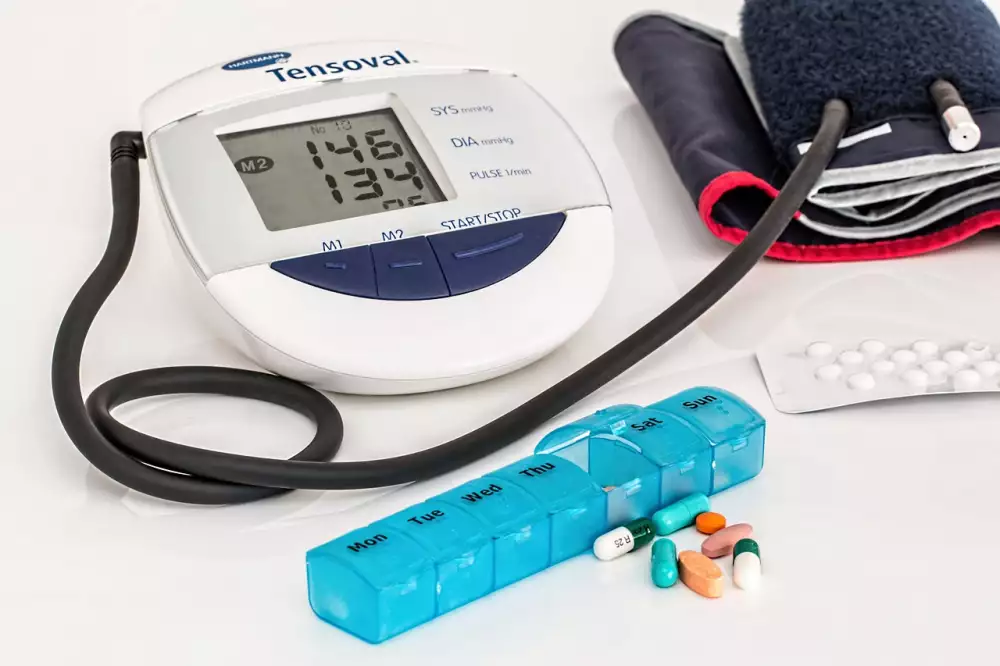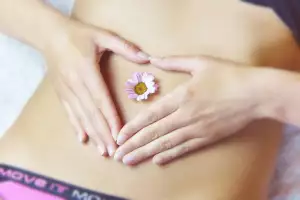Miracle methods to get rid of hemorrhoids: discover the most effective treatment for your health!

- What are hemorrhoids?
- Symptoms and diagnosis of haemorrhoids
- Prevention of haemorrhoids
- Conservative treatment of hemorrhoids
- 1 Topical medicines and ointments
- 2 Lifestyle changes
- 3 Diet rich in fibre
- Progressive treatment of haemorrhoids
- 1 Sclerotherapy
- 2 Ligation of hemorrhoids with rubber rings
- 3 Infiltration Coagulation
- 4 Surgery
- Alternative approaches to the treatment of haemorrhoids
- 1 Herbal remedies and ointments
- 2 Acupuncture
- 3 Homeopathy
- Care after treatment of haemorrhoids
- Recommended reading
Hemorrhoids are a common problem that affects many people. This unpleasant medical condition can cause pain, itching and bleeding in the rectal area. Treatment of hemorrhoids is important to relieve these symptoms and restore the normal functioning of the body. There are several methods of treatment that are effective and gentle to the patient. In this article, we will focus on the best methods of hemorrhoid treatment and provide you with useful information on how to deal with this health problem.
What are hemorrhoids?
Hemorrhoids are basically enlarged venous plexuses in the rectal cavity and around the anus. They can be internal, external or combined and become a frequent problem for many people at different ages. Symptoms of hemorrhoids include itching, burning sensation, bleeding and swelling. There are many ways to treat hemorrhoids, such as creams, ointments, enemas or surgery. However, it is important to consult a specialist before deciding on a particular treatment.
Symptoms and diagnosis of haemorrhoids
Hemorrhoids are a relatively common problem that can not only be very painful, but also fundamentally affect the quality of life of the affected person. Symptoms of hemorrhoids include rectal bleeding, itching, burning and pain in the anus. If these symptoms occur regularly and over a long period of time, it may be a manifestation of hemorrhoids.
The diagnosis of haemorrhoids is made with the help of a proctological examination, which may be supplemented by other diagnostic methods such as rectoscopy or anoscopy. If the diagnosis of hemorrhoids is confirmed, it is important to seek appropriate medical care and ensure adequate treatment.
Prevention of haemorrhoids
Prevention of hemorrhoids is a key way to minimize the potential pain or discomfort associated with this condition. Once discovered, treating hemorrhoids can be difficult and often requires long-term care. Therefore, it is important to pay attention to preventing hemorrhoids by, for example, exercising regularly, consuming fiber and fluids, and avoiding an excessively sedentary lifestyle. Prevention also includes good hygiene and avoidance of risky situations such as straining during bowel movements or excessive pushing during defecation. Trying to modify one's lifestyle to minimize the risk of hemorrhoid formation should therefore be a goal for anyone who suffers from this condition or has an increased risk profile due to family history, obesity, or some other factor.
Conservative treatment of hemorrhoids
Conservative treatment for hemorrhoids involves dietary changes and physical activity, which can lead to a reduction in symptoms and improvement in the condition. Recommended changes include increasing fiber intake, consuming sufficient fluids and avoiding constipation. Regular exercise to strengthen the pelvic floor muscles is also an important part of conservative treatment. Another method used is topical medications in the form of creams or suppositories containing anti-inflammatory and anesthetic agents that can help relieve the itching, swelling and pain associated with hemorrhoids. If necessary, oral medications based on venotonics or cryoapplication (freezing) of small hemorrhoids may also be used. Conservative methods are particularly suitable for mild and moderate cases of haemorrhoids without complications such as prolapses or thrombosis. Although these methods may not be completely effective in all cases, they can be very useful as a first step in the treatment of haemorrhoids.
1 Topical medicines and ointments
Local medications and ointments are an important part of hemorrhoid treatment. These products are applied directly to the affected area and help relieve symptoms such as itching, burning, pain or bleeding. Topical preparations may contain various substances such as corticosteroids, lidocaine or antiseptics. It is important to choose the right type according to the type of hemorrhoid and the doctor's recommendations. The use of topical medications and ointments in combination with other therapeutic measures can help achieve relief from the unpleasant symptoms of hemorrhoids.
2 Lifestyle changes
In the modern world, many people have been struggling with hemorrhoid problems in recent years. This is often due to lifestyle changes that can have a negative impact on our body. The two main factors are lack of exercise and improper diet. People who spend long hours sitting in an office in front of a computer and are not active have a higher risk of hemorrhoids. Similarly, an unhealthy diet rich in fats and sugars increases the likelihood of developing this problem. Therefore, it is important to modify your lifestyle, add more exercise to your day and start consuming a healthy diet containing enough fiber to reduce the risk of hemorrhoids.
3 Diet rich in fibre
A diet rich in fiber plays an extremely important role in the treatment of hemorrhoids. Fibre helps to keep the stool soft and thus prevents congestion of the anal canal. In addition, it reduces the risk of constipation, which can promote the development of hemorrhoids. Foods rich in fiber include whole grain breads, fruits and vegetables (especially peaches, apples and spinach) or legumes such as beans or peas. A diet with sufficient fibre should be part of the daily diet of a haemorrhoid sufferer for effective and efficient treatment of this unpleasant disease.
Progressive treatment of haemorrhoids
Progressive treatment of hemorrhoids is currently one of the most effective treatments for this unpleasant and painful disease. It involves a combination of different therapies such as topical ointments, rectal suppositories, pain and inflammation relievers, and in some cases, surgical interventions. Changing the patient's lifestyle, including a diet rich in fiber, adequate hydration and regular exercise, is also an important element of progressive hemorrhoid treatment. Because hemorrhoids can be very difficult to treat, it is important to consult with your doctor about the best course of action for your individual needs.
1 Sclerotherapy
Sclerotherapy is a very effective method of treating hemorrhoids. It is a non-invasive procedure in which a special drug is injected into the affected blood vessels, causing them to close and then die. This process leads to a reduction in the swelling and pain associated with hemorrhoids and to the permanent elimination of the disease. Sclerotherapy is usually performed on an outpatient basis without the need for hospitalization, and patients are able to return to their daily activities within a few days after the procedure.
2 Ligation of hemorrhoids with rubber rings
2 Ligation of hemorrhoids with rubber rings is one of the effective methods of hemorrhoid treatment. This procedure involves placing a rubber ring around the root of the hemorrhoid, which gradually causes it to fall off spontaneously over a few days. This method is particularly effective for internal hemorrhoids that cannot be treated by conservative methods. Patients may be slightly painful after the procedure and may feel light bleeding the next day, but usually recover quickly without the need for hospitalization. The reliability and effectiveness of this method make it one of the most popular options for treating hemorrhoids.
3 Infiltration Coagulation
Infractional coagulation is a modern and effective method used to address the problems associated with hemorrhoids. This method uses a special device that can affect the venous arteries in the rectal area. Thanks to this, they are closed and thus hemorrhoids are reduced. This procedure is performed on an outpatient basis and the patient can return straight home. Infiltration coagulation has several advantages over other methods, such as minimal pain, fast healing and low risk of complications. In case you suffer from hemorrhoids, you should definitely consider this method as one of your treatment options.
4 Surgery
Treatment of hemorrhoids may involve various surgical procedures, depending on the severity and type of the disease. The most commonly used include hemorrhoid ligation, hemorrhoidectomy, sclerotherapy, and electrocautery. Hemorrhoid ligation is a minimally invasive procedure where a rubber band is placed over the hemorrhoids to close off their blood flow and gradually cause them to die. Hemorrhoidectomy is the surgical removal of the hemorrhoid itself and is reserved for the most severe cases. Sclerotherapy involves injecting a solution into the bleeding parts of the hemorrhoid in order to gather the tissues together and thus close the bleeding. Electrocautery then involves the use of an electric current to vaporise the haemorrhoid. Each patient needs individual treatment according to their specific needs, so each procedure should be carefully assessed by a physician.
Alternative approaches to the treatment of haemorrhoids
Hemorrhoids are an unpleasant and often painful condition that can affect any of us. In addition to conventional medication and surgery, there are alternative approaches to relieve the symptoms of hemorrhoids. These include herbal remedies, lifestyle changes such as regular exercise and a diet rich in fibre, or sitz baths with herbal extracts, for example. These methods can help relieve the problems associated with hemorrhoids without the need to take strong medications or undergo invasive surgical procedures. However, it is important to remember that each organism is individual and what works for one person may not be effective for another. Therefore, it is essential to consult any alternative methods with a medical professional or pharmacist.
1 Herbal remedies and ointments
Hemorrhoids are an unpleasant health problem that plagues many people. However, there are a number of herbal remedies and ointments that can help relieve symptoms and speed up healing. Some of the most effective include hamamelis, chamomile, calendula or arnica. These herbs have anti-inflammatory and disinfectant properties, helping to reduce the swelling, pain and irritation of hemorrhoids. Herbal ointments containing these herbs are applied directly to the affected area and with regular use can lead to an improvement in the overall condition. It is important to note, however, that even when using herbal remedies, it is advisable to consult a physician about the correct dosage and combination with other medications or therapies.
2 Acupuncture
Acupuncture is a traditional healing method that has recently become very popular also for the treatment of hemorrhoids. This method of therapy involves the application of fine needles to specific points on the body that are connected to the disease. In the case of haemorrhoids, acupuncture mainly focuses on affecting blood circulation in the pelvic area and reducing inflammation. This method can be successful as a stand-alone therapeutic solution or in combination with other methods such as diet and lifestyle changes, the use of natural remedies or, in rare cases, surgery. Acupuncture is considered a safe and effective alternative to conventional medical procedures in the treatment of hemorrhoids.
3 Homeopathy
Homeopathy is an alternative healing method that focuses on supporting the body's self-healing abilities. It looks for the cause of disease and seeks to eliminate it using natural substances. For example, various homeopathic preparations containing Arnica montana, Hamamelis virginiana or Aesculus hippocastanum can be effective in the treatment of hemorrhoids. These herbal extracts help to relieve pain and inflammation in the rectal area and thus contribute to the overall improvement of the patient's health. However, it is advisable to consult a homeopathic practitioner for homeopathic treatment in order to choose the right approaches to be as effective as possible and with minimum risk to the patient.
Care after treatment of haemorrhoids
Care after haemorrhoid treatment is a key factor in achieving a successful outcome. It is important to follow the doctor's instructions and take measures to prevent further problems. The following are some of the recommended methods of care: maintaining hygiene of the anal area, changing dietary habits to a fiber-rich diet, getting enough exercise, drinking and avoiding congestion during defecation. In addition, special creams or ointments may be recommended to reduce pain or inflammation in this area. In summary, proper aftercare for hemorrhoids can help minimize the duration and recurrence of these problems.
In conclusion, hemorrhoid treatment can be very effective and help patients get rid of the unpleasantness associated with this disease. However, it is important to remember that each case is individual and should be assessed by a specialist based on the specific needs and condition of the patient. At the first suspicion of hemorrhoids, the patient should seek medical help and not let his or her disease continue without treatment. Modern medicine offers various methods to combat this disease, so there is no reason to continue to suffer unnecessary difficulties.
Recommended reading
If you are looking for recommended literature on the topic of hemorrhoid treatment, we can offer you several titles. Among the most interesting is the book "Hemorrhoids and how to get rid of them" by the author Petr Novotny. This book provides detailed information on the causes of hemorrhoids, but also describes effective methods of treatment, including advice on lifestyle and dietary changes.
Another tip is the book "Medicines for haemorrhoids - what works and what doesn't" by author Maria Svobodova. This guide provides a comprehensive overview of the medications available for the treatment of hemorrhoids and reviews their effectiveness and side effects.
Finally, we would like to mention a book called "Fruit Juices for Gut Health", which is not directly oriented towards hemorrhoids, but describes the positive effects of fruit juices on the digestive tract and thus reduces the risk of hemorrhoids.
Published: 13. 10. 2023
Category: Health



